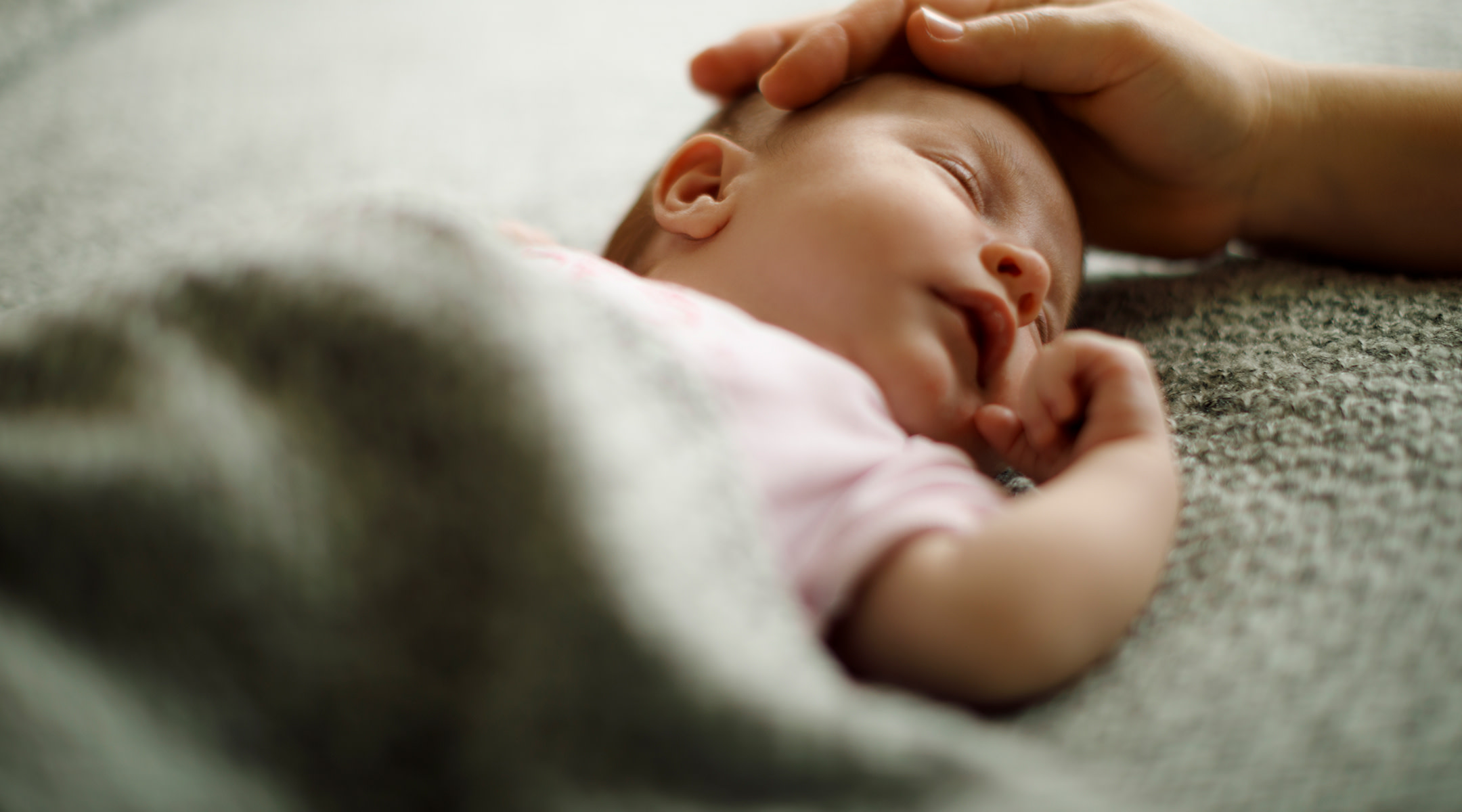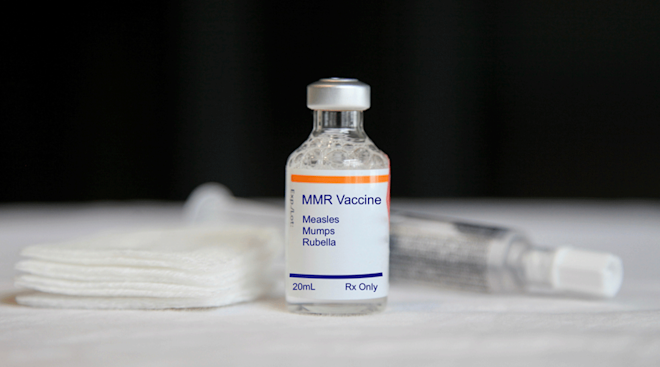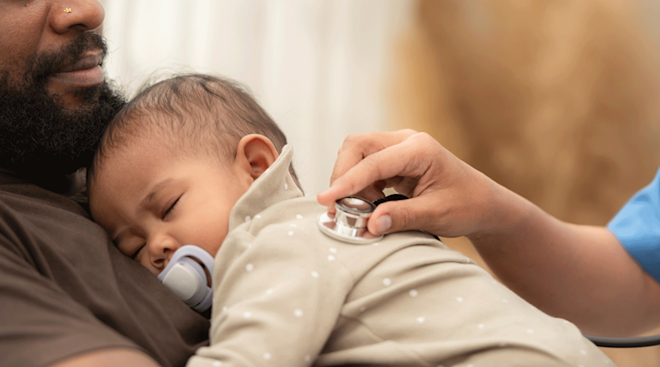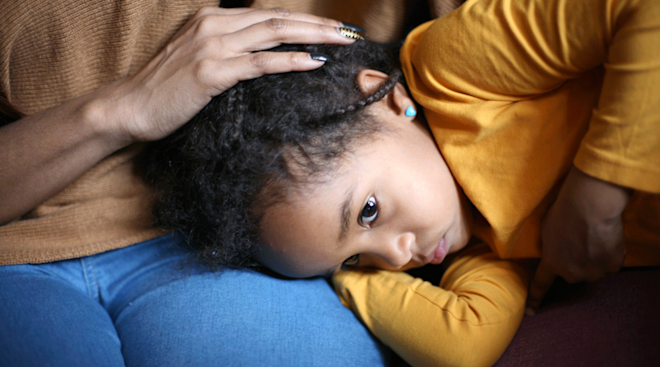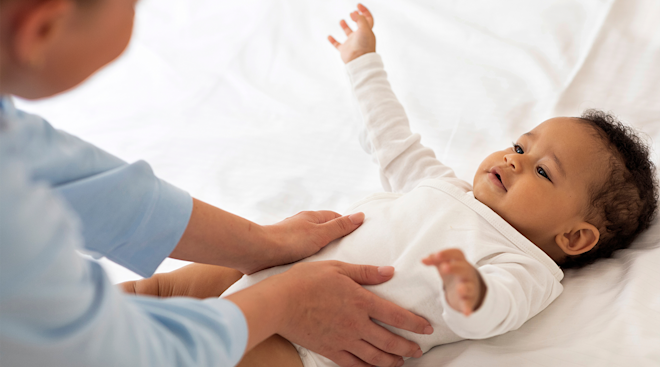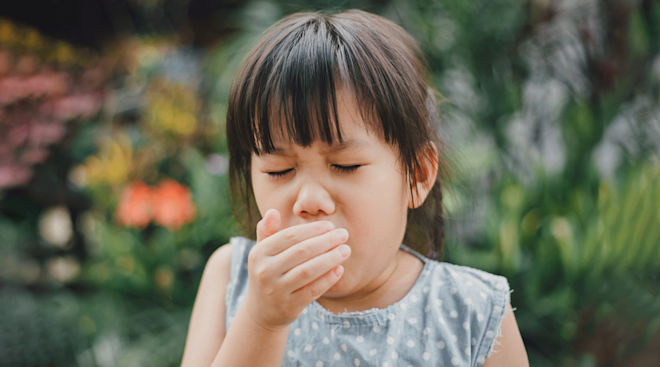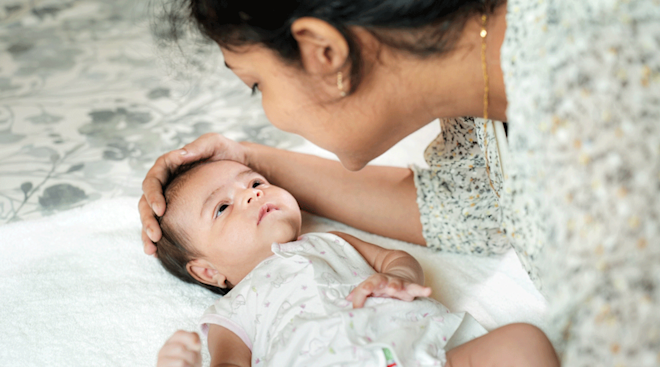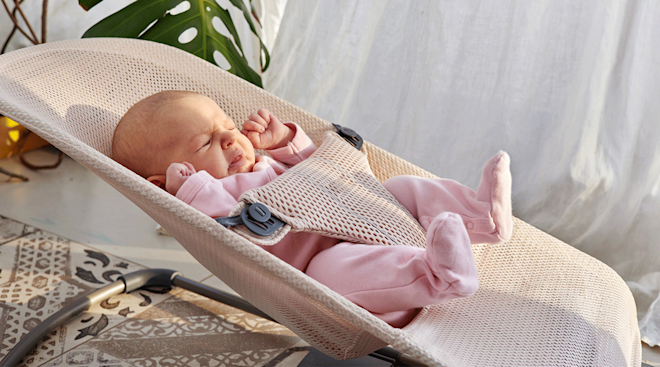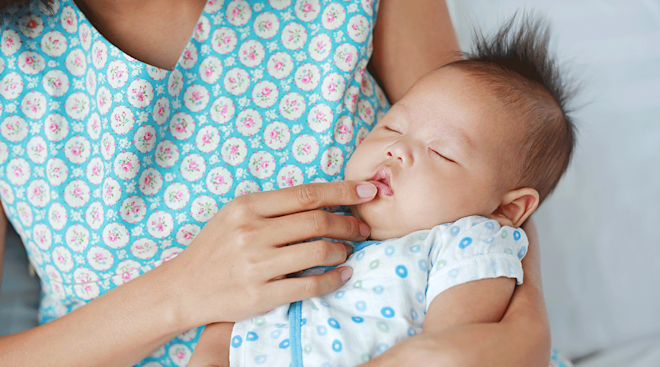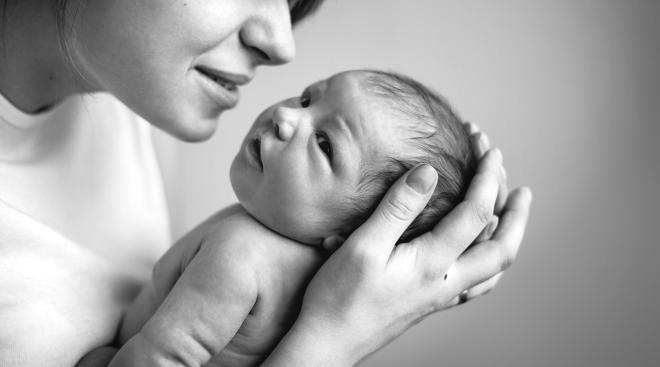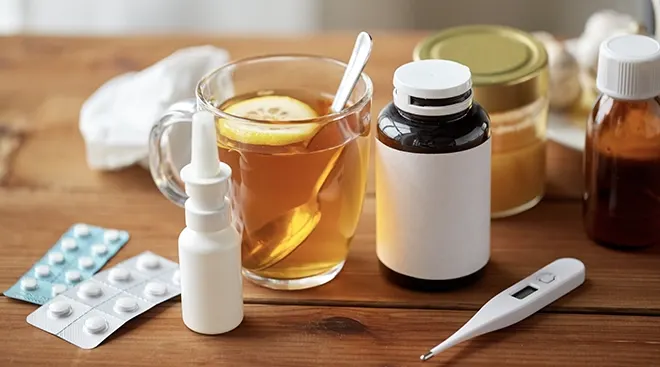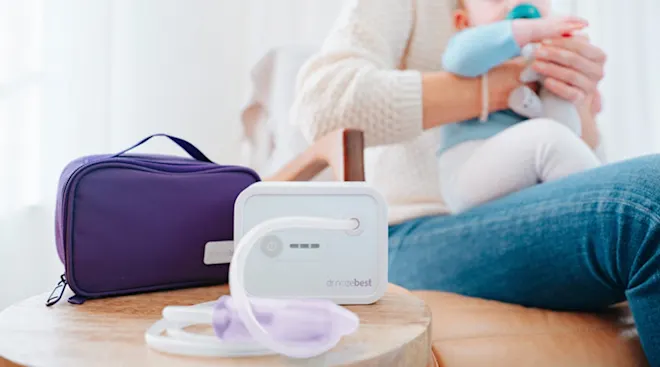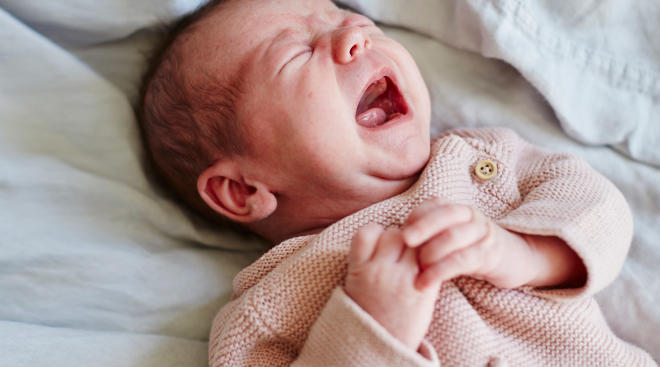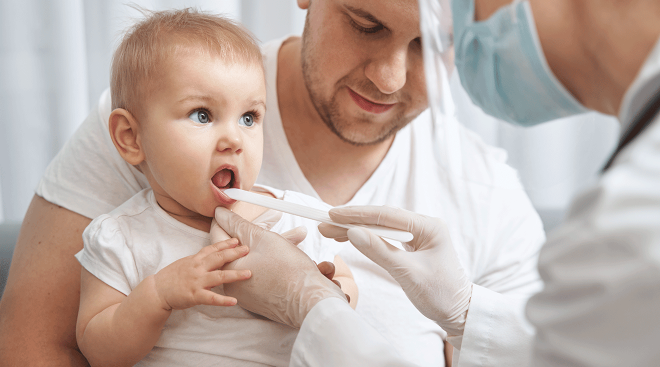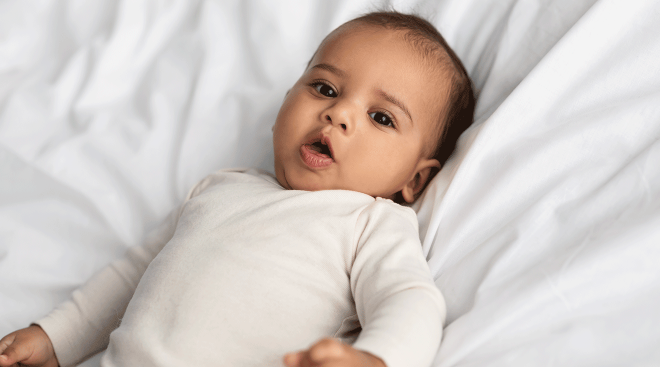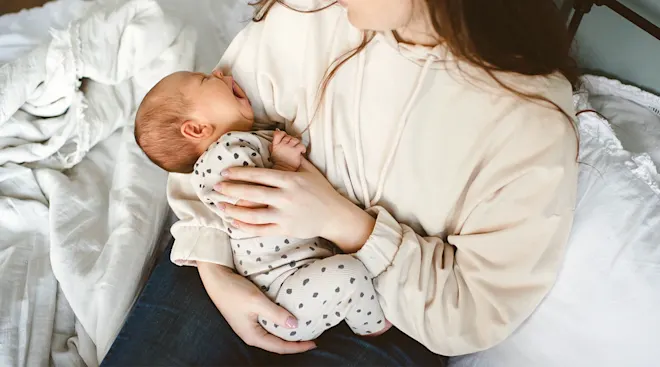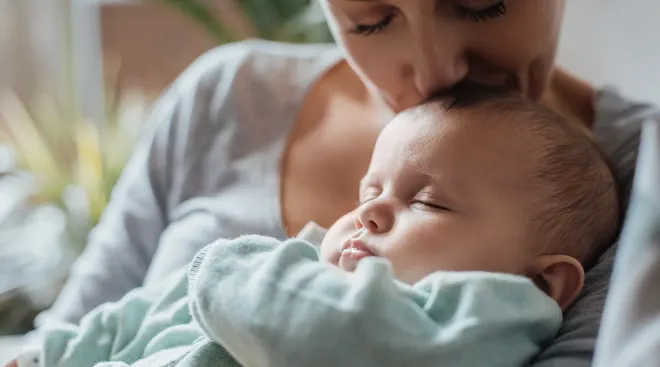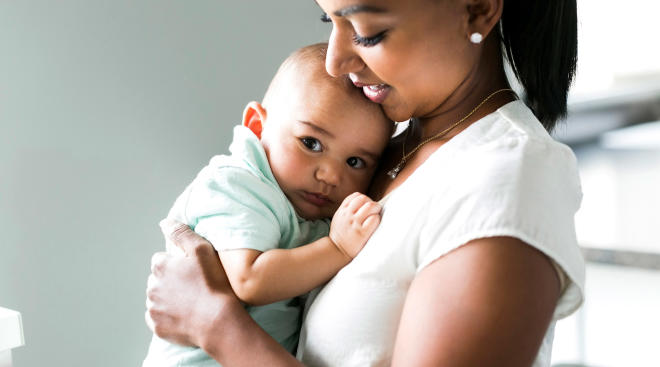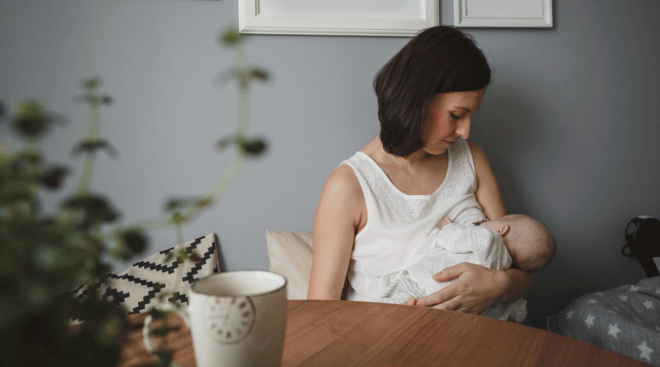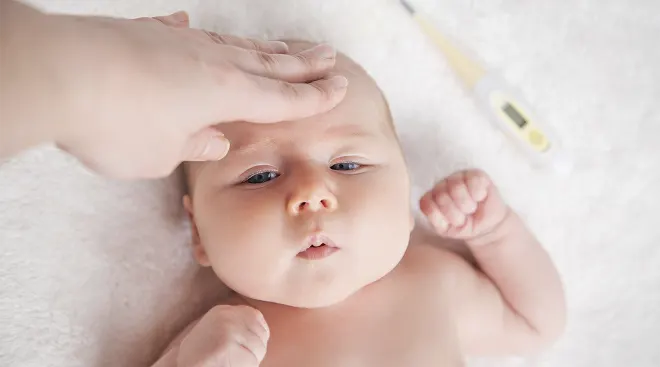5 Baby Fever Myths—Debunked
For new parents, experiencing baby’s “firsts” can be pretty exhilarating—or, in some cases, a bit alarming—like their first fever. The thought of your little one sick is of course upsetting, and it’s only natural to worry when you notice they feel warm. In fact, 75 percent of first-time moms reported feeling helpless upon realizing their child was feverish, and 87 percent have been kept awake at night for fear of how a fever could impact their child, according to a 2018 survey. To help you put any concerns to rest, read on to learn some common myths and truths about baby fevers. Armed with the facts, you’ll be ready to handle that first temperature like a pro.
Reality: The temperature that determines a fever depends on how you took the reading.
It’d be easy to have one universal fever threshold, wouldn’t it? Generally speaking, a body temperature of 100.4 degrees Farhenheit is considered a fever—but it does vary based on which method you use to get the reading. According to the Mayo Clinic, the following readings indicate a fever:
- Rectal, ear or forehead temperature of 100.4 or higher
- Oral temperature of of 100 or higher
- Armpit temperature of 99 or higher
Experts say the most accurate way to determine baby’s temperature, especially for a newborn, is with a rectal reading.
Reality: Fever in babies over 3 months isn’t necessarily an urgent matter.
When it comes to newborns under 3 months old, contact your pediatrician or seek immediate medical care at the first sign of a fever, since infants have weaker immune systems and an infection can spread more rapidly than in older children. But little ones between 3 and 6 months can have an elevated temperature of up to 102 degrees without it automatically being a cause for concern, and babies 6 months and up can have a fever for a few days before the doctor may want to do a check-up. Regardless of baby’s age and the number on the thermometer, you should always contact your pediatrician if you have concerns, notice your child is visibly weak, limp or inconsolable or has any changes in their breathing or coloring.
Reality: Take a new reading if you note a change in their behavior or appearance or before giving medicine to make sure it’s needed.
You might be tempted to take baby’s temperature every 10 minutes once you notice they’re warm, but it’s not necessary. If they seem to be getting sicker or wake themselves up in the middle of the night, it may be a good time to take a new reading. Otherwise, as long as they aren’t exhibiting any other symptoms, try not to disrupt their routine to take their temperature or give them medicine—it’s more important that baby feels comfortable and gets the rest they need.
Reality: Fevers should always be monitored, but that doesn’t mean you need to give medicine.
In fact, you shouldn’t give baby fever reducers like acetaminophen without running it by your pediatrician first until baby is over 6 months. If your littl one is eating and sleeping normally, maintaining typical activity levels and not showing signs of pain or discomfort, you can start with non-medicinal remedies to help them stay comfortable. These include keeping their room a bit cooler than usual, giving them a lukewarm sponge bath and making sure they’re drinking extra fluids.
Reality: An elevated temperature can simply mean the body is fighting off infection or illness.
While a fever can be cause for concern, it’s a symptom, not an illness. The concern should be whether or not there may be an underlying illness, rather than just focused on the fever itself. And think of the silver lining: It’s evidence that your child’s developing immune system is learning to adjust and respond to the world around them.
Please note: The Bump and the materials and information it contains are not intended to, and do not constitute, medical or other health advice or diagnosis and should not be used as such. You should always consult with a qualified physician or health professional about your specific circumstances.
Plus, more from The Bump:
Navigate forward to interact with the calendar and select a date. Press the question mark key to get the keyboard shortcuts for changing dates.
































